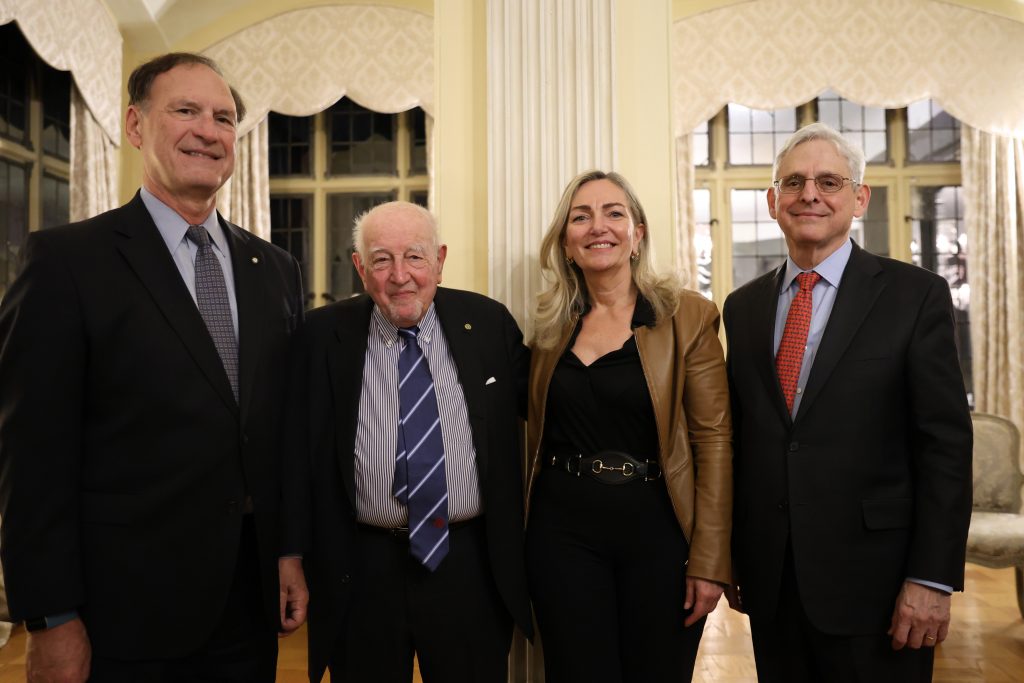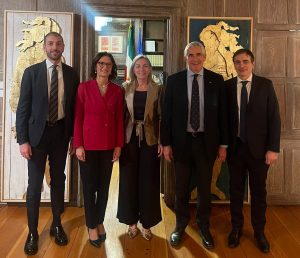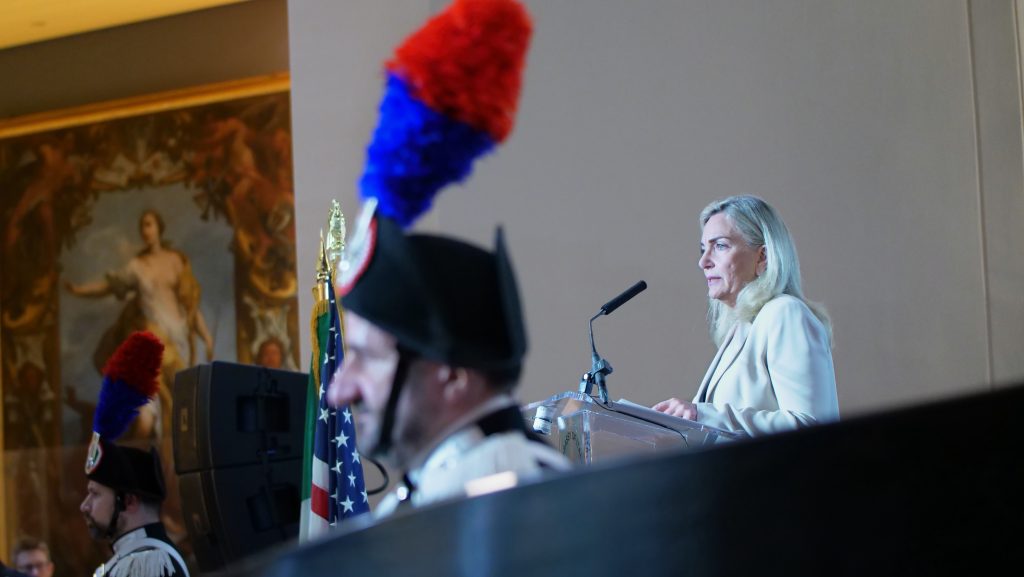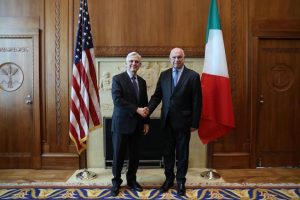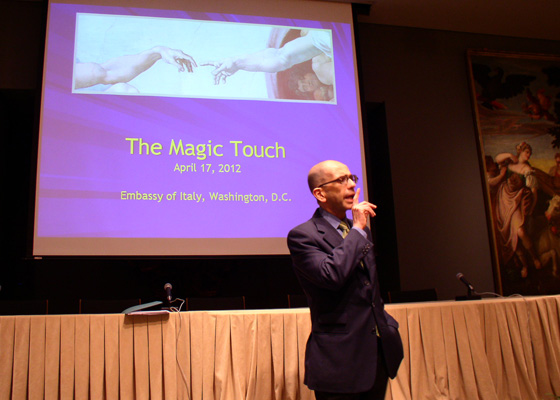
Minister Cristiano Maggipinto
The Italian Embassy, represented by Minister Cristiano Maggipinto and the Director of the Education Office, Lucia Dalla Montà, brought together the leadership of Italian American organizations in the Washington Metropolitan area to discuss the status of programs to teach Italian in American schools and in particular future funding for the programs.
The good news is that more than 2,000 students have registered to take the upcoming AP exam in Italian Language and Culture. The AP exam was first introduced in the 2005-2006 academic year. However, due to low numbers of students taking the exam, the College Board discontinued it after the 2008-2009 year. With the intervention of Ambassador Giulio Terzi, now Italy’s Foreign Minister, $3million were raised by national Italian American organizations and contributions by the Italian government and Italian companies. The College Board reinstated the AP Italian program starting with the May 2012 exam.

The bad news, however, is that the Italian government, which had been funding many of the Italian Language Programs at the public and private school system through the non-profit organizations “Enti Gestori,” has significantly reduced its financial support. Consequently, the promotion of the Italian language is entering, as Maggipinto noted, “a critical moment.” For example, as noted by Ron Cappelletti, the current president of the Italian Cultural Society of Washington, D.C., one of the two Enti Gestori in our area (the other is the Casa Italiana Language School), the Italian government in the past had provided annual funding to the Society in excess of $400,000. Current funding, however, is down to $100,000. Consequently, the Society, as all other Enti Gestori, will face significant financial challenges. A parallel challenge, as Maggipinto noted, is the lack of qualified and certified teachers of Italian. In the United States, teachers are certified by the 50 states, and only last year, was a commission to certify Italian teachers established in California. Consequently the promotion of programs that generate teachers of Italian is a high priority, too.
The promotion of the Italian language is undoubtedly in the best interest of all Italians and Italian Americans. Our children, grandchildren, will learn about their roots, their culture, their Italian language. The Italian government too, has a significant interest in the promotion of the Italian language and culture, because ultimately it will receive financial benefits through an increase in tourism to Italy and in the purchase of Italian made goods.
However, Italian Americans have always been self sufficient and there is no question that they will rise to the challenge and provide the financial support needed to promote the Italian language and culture. The first step, however, as suggested by Daniel Stabile, President of COPILAS who also spoke at the meeting, is that “we need a systematic plan” to get the job done. (March 18, 2012)
